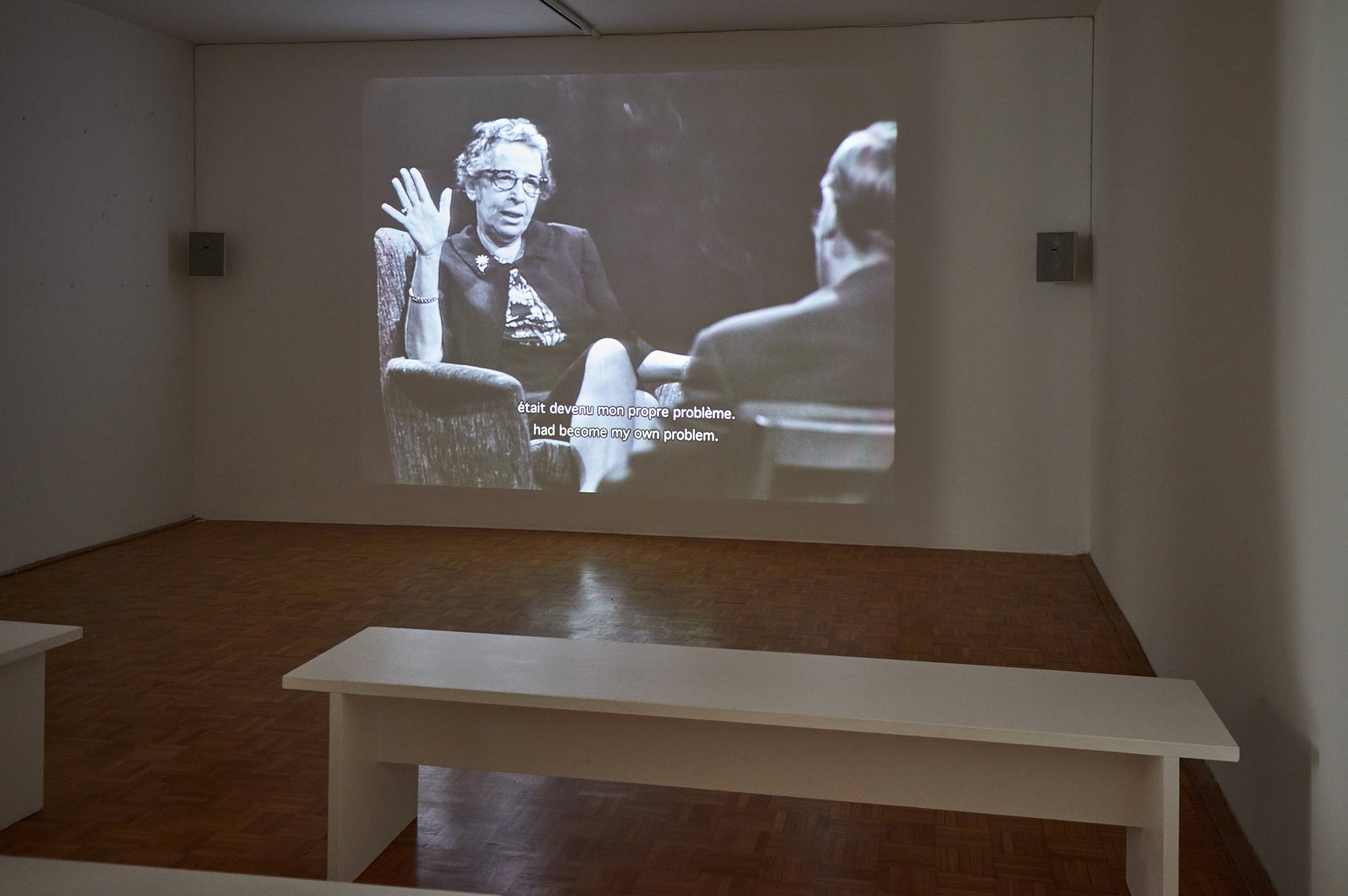Hannah Arendt (1906 – 1975, US) was born into a German-Jewish family. She was a political theorist who examined totalitarianism, anti-semitism, colonialism, and racism. She studied at the University of Marburg under philosopher Martin Heidegger, the Albert Ludwig University of Freiburg, and the University of Heidelberg where she received a doctoral degree in philosophy. In 1933, was forced to leave Germany and moved to Paris through Prague and Geneva where she worked for a number of Jewish refugee organisations. In 1941, Arendt immigrated to the United States. During the post-war period she lectured at a number of American universities, but was most closely associated with the New School for Social Research, where she was a professor of political philosophy until her death.
Hannah Arendt, The Person [in conversation with Günter Gaus], 1964
Interview in German with English and French subtitle
Hannah Arendt fled from Germany to Paris in 1933 and later came to Marseille in 1940. The present interview Zur Person [im Gespräch with Günter Gaus] was originally broadcast on the public German television channel ZDF in 1964. In this hour-long conversation, Arendt sketches the personal and historical background of her political work. Though Arendt had experienced anti-semitism from an early age, it was ultimately the events following the Reichstag Fire of 1933 that galvanised her into political action – specifically in the interest of the Jewish diaspora. Even though the personal and the political intersected so violently in her own life, Arendt remained ambivalent about the role of personal experience and identity in politics. She takes identity as an inevitable starting point – ‘One always belongs to some group or another by birth’ – but goes on to propose that we achieve our fullest humanity by ‘risking the public’, in other words, by subjecting one’s person to the scrutiny of the public sphere.









 The Person [in conversation with Günter Gaus], 1964 © Hannah Arendt. Photo ©Jeanchristophe Lett - Manifesta 13 Marseille
The Person [in conversation with Günter Gaus], 1964 © Hannah Arendt. Photo ©Jeanchristophe Lett - Manifesta 13 Marseille